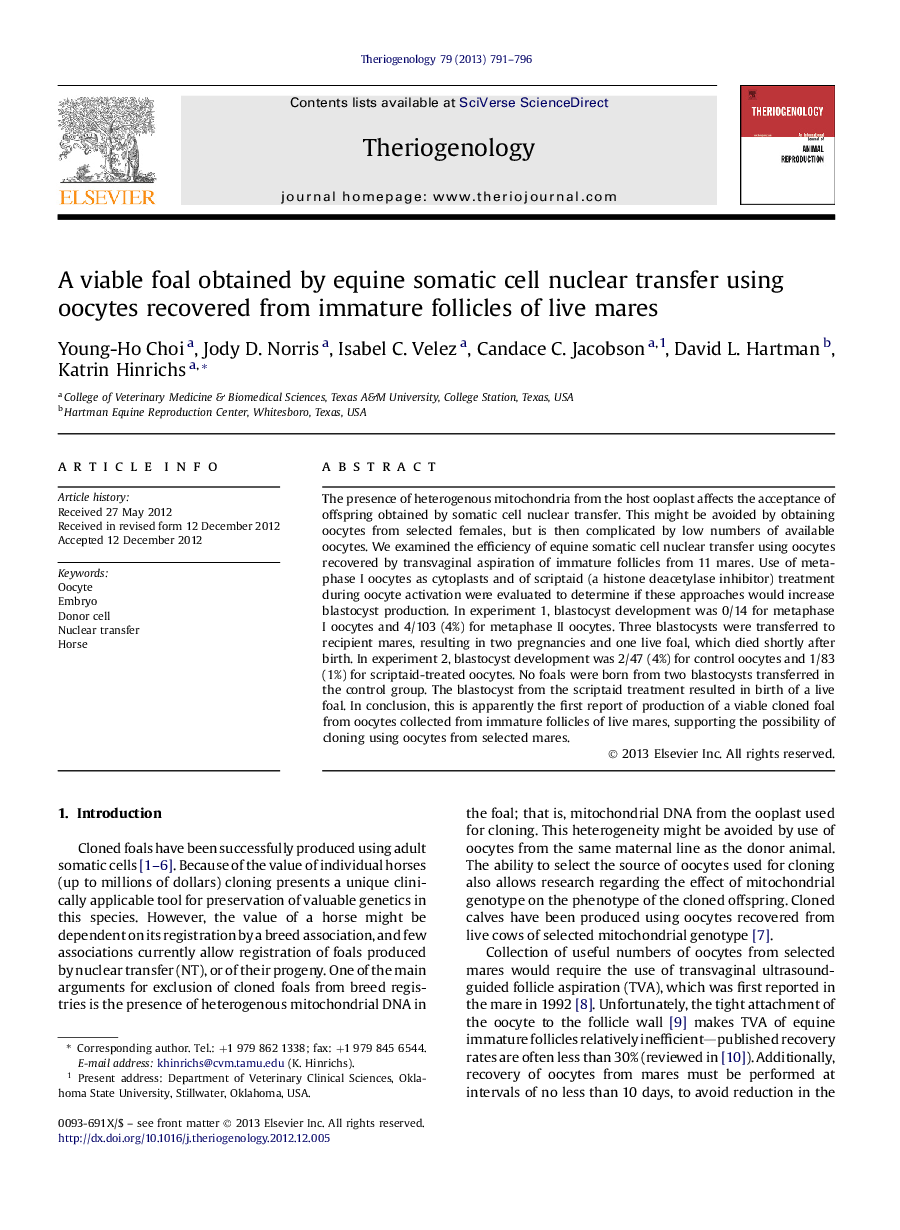| Article ID | Journal | Published Year | Pages | File Type |
|---|---|---|---|---|
| 10894471 | Theriogenology | 2013 | 7 Pages |
Abstract
The presence of heterogenous mitochondria from the host ooplast affects the acceptance of offspring obtained by somatic cell nuclear transfer. This might be avoided by obtaining oocytes from selected females, but is then complicated by low numbers of available oocytes. We examined the efficiency of equine somatic cell nuclear transfer using oocytes recovered by transvaginal aspiration of immature follicles from 11 mares. Use of metaphase I oocytes as cytoplasts and of scriptaid (a histone deacetylase inhibitor) treatment during oocyte activation were evaluated to determine if these approaches would increase blastocyst production. In experiment 1, blastocyst development was 0/14 for metaphase IÂ oocytes and 4/103 (4%) for metaphase II oocytes. Three blastocysts were transferred to recipient mares, resulting in two pregnancies and one live foal, which died shortly after birth. In experiment 2, blastocyst development was 2/47 (4%) for control oocytes and 1/83 (1%) for scriptaid-treated oocytes. No foals were born from two blastocysts transferred in the control group. The blastocyst from the scriptaid treatment resulted in birth of a live foal. In conclusion, this is apparently the first report of production of a viable cloned foal from oocytes collected from immature follicles of live mares, supporting the possibility of cloning using oocytes from selected mares.
Related Topics
Life Sciences
Agricultural and Biological Sciences
Animal Science and Zoology
Authors
Young-Ho Choi, Jody D. Norris, Isabel C. Velez, Candace C. Jacobson, David L. Hartman, Katrin Hinrichs,
